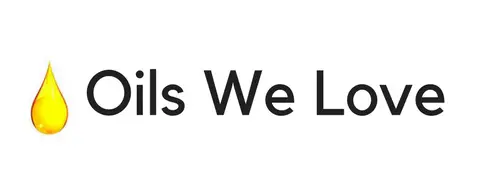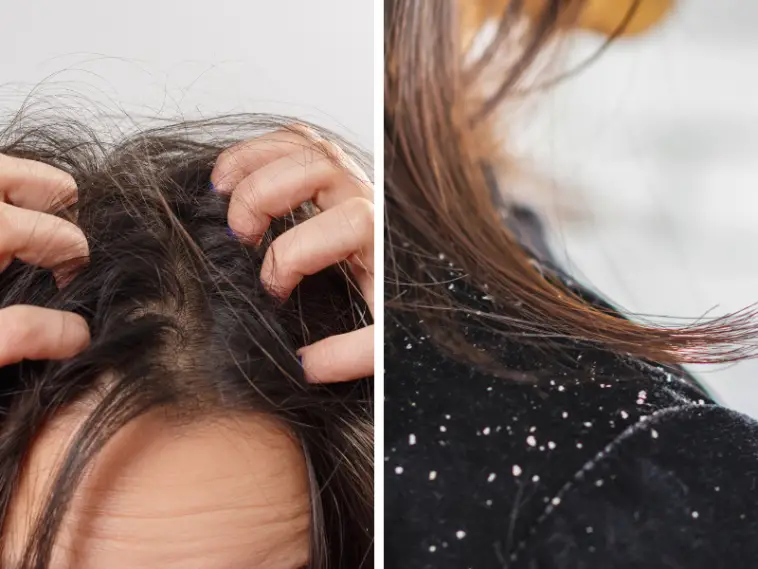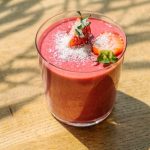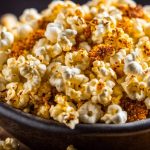Dandruff is a common scalp condition characterized by flaking of the skin on the scalp. Despite being common, it can be embarrassing and annoying for people dealing with this issue.
The exact cause of dandruff is unknown, but various factors can contribute to its appearance. These include irritations due to certain hair products, dry skin, and a yeast-like fungus (malassezia) that feeds on oils on the scalps of most adults. Its presence could cause more skin cells to grow, which then die and fall off, making them appear white and flaky in your hair or on your clothes.
Demystifying Dandruff: It’s Not about Hygiene
A common misunderstanding about dandruff ties it to inadequate hygiene. However, this isn’t accurate. Dandruff primarily emerges from an overproduction of a natural oil, sebum, from your scalp’s sebaceous glands. Malassezia, a type of yeast that thrives on sebum, releases a by-product that irritates the scalp and leads to an overproduction of skin cells, hereby causing dandruff. Consequently, while regular washing can help control dandruff, having it does not imply uncleanliness.
Does Dry Scalp Cause Dandruff?

- 2-Week anti-inflammatory meal plan.
- 45 Foods that Cause Inflammation
- 31 Things to Avoid on Food Labels
- Grocery Lists. Challenges. Symptoms Tracker
Although dry scalp and dandruff may present similar symptoms – like white flakes – they have different underlying causes. Dry scalp typically results from environmental conditions, such as cold, dry air, or reactions to hair care products that dry the scalp. In contrast, dandruff comes from the overproduction of oil on the scalp and the rapid turnover of scalp skin cells, often driven by the overgrowth of Malassezia yeast. Therefore, applying oils to the scalp – a frequent home remedy for dry scalp – wouldn’t necessarily benefit someone with dandruff.
Misconception: Dandruff is Contagious
Contrary to some beliefs, dandruff is not contagious. It cannot be passed from person to person through a sharing of personal items like combs, hairbrushes, or hats. This misconception may originate from visible dandruff flakes, which some people incorrectly assume to be a communicable skin condition. In actuality, dandruff is a scalp-specific issue predominantly driven by individual factors, such as scalp oil production, scalp microbial activity, and personal response to these factors.
5 Proven Home Remedies for Dandruff
1. Neem Oil Hair Mask
Neem oil, derived from the seeds of the neem tree, has long been hailed for its natural healing properties, and its effectiveness in treating dandruff is no exception. Packed with antifungal and antibacterial properties, neem oil addresses the root cause of dandruff, often triggered by the overgrowth of yeast on the scalp. Neem oil’s potent compounds, such as nimbin and azadirachtin, combat the fungus, soothe irritated skin, and reduce inflammation. Additionally, neem oil’s rich moisturizing properties help restore the scalp’s natural balance, preventing dryness and flakiness. Its versatility and ability to promote a healthy scalp make neem oil a holistic solution for those seeking an effective and natural remedy for dandruff.
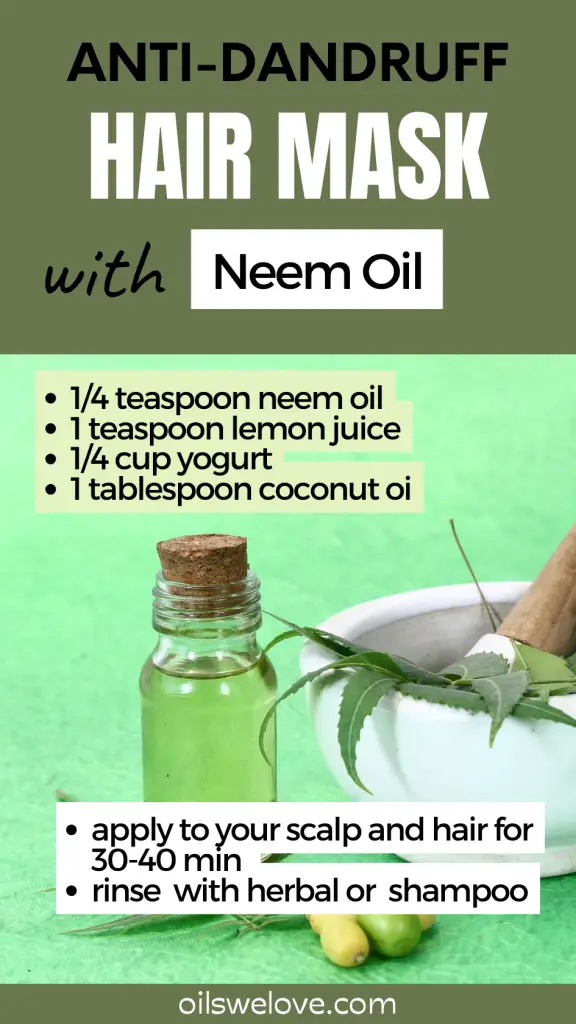
2. Apple Cider Vinegar Hair Rinse
Tea tree oil is renowned for its efficiency and widespread usage as an at-home treatment for dandruff. Its anti-inflammatory and anti-microbial qualities can significantly help in mitigating the severity of dandruff. Adding weight to this, the Journal of the American Academy of Dermatology published a study revealing that shampoos containing 5% tea tree oil brought about substantial improvement in dandruff symptoms. To reap these benefits, consider integrating a tea tree oil-containing shampoo into your hair care routine or enrich your usual shampoo with a few drops of tea tree essential oil.
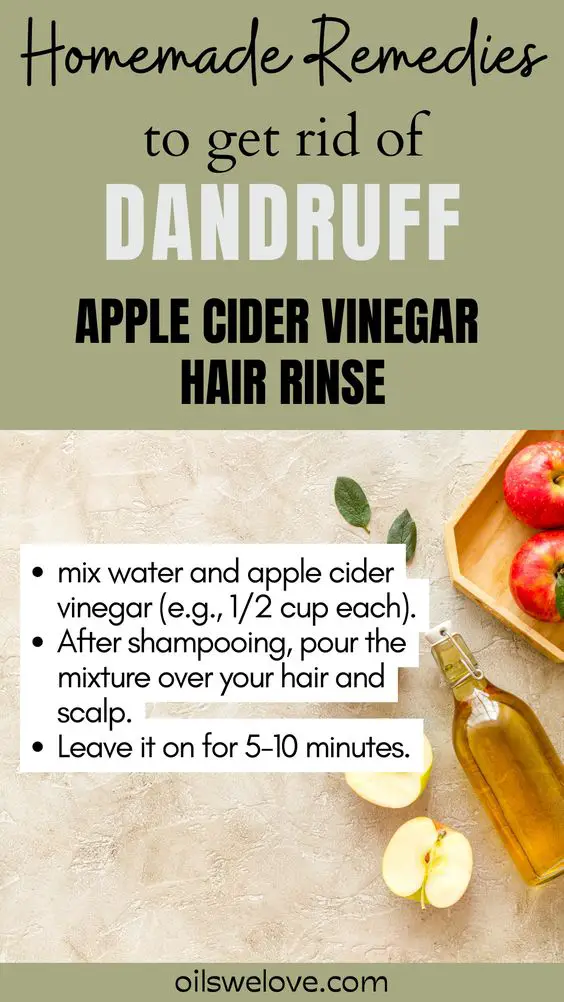
3. Oatmeal Scalp Scrub for Dandruff
Revitalize your scalp with this invigorating DIY Scalp Scrub for Dandruff. The combination of sea salt, coconut oil, and tea tree oil creates a refreshing and exfoliating blend that helps remove flakes and soothe irritated skin. Sea salt gently sloughs away dead skin cells, while coconut oil provides moisture, preventing dryness. The antimicrobial properties of tea tree oil work wonders in combating dandruff-causing fungi. Together, these ingredients make for a delightful and effective scalp treatment.
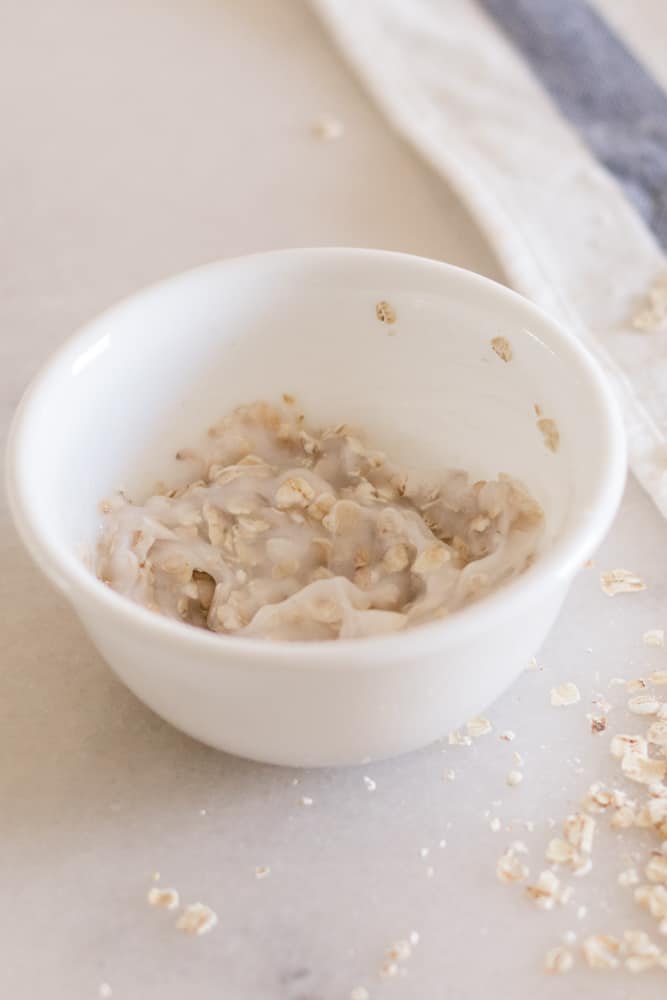
Get the full recipe at: Our Oily House
4. Yogurt Hair Mask
Indulge your hair in a luxurious treat with this Yogurt Hair Mask. The creamy yogurt, honey, and olive oil concoction nourishes and revitalizes your locks. Yogurt, rich in lactic acid, acts as a gentle exfoliant, promoting a healthy scalp and preventing dandruff. Honey’s humectant properties lock in moisture, while olive oil adds a dose of hydration and shine. This mask is a sensory delight, leaving your hair feeling soft, silky, and rejuvenated. Get the full recipe at: Beauty Munsta
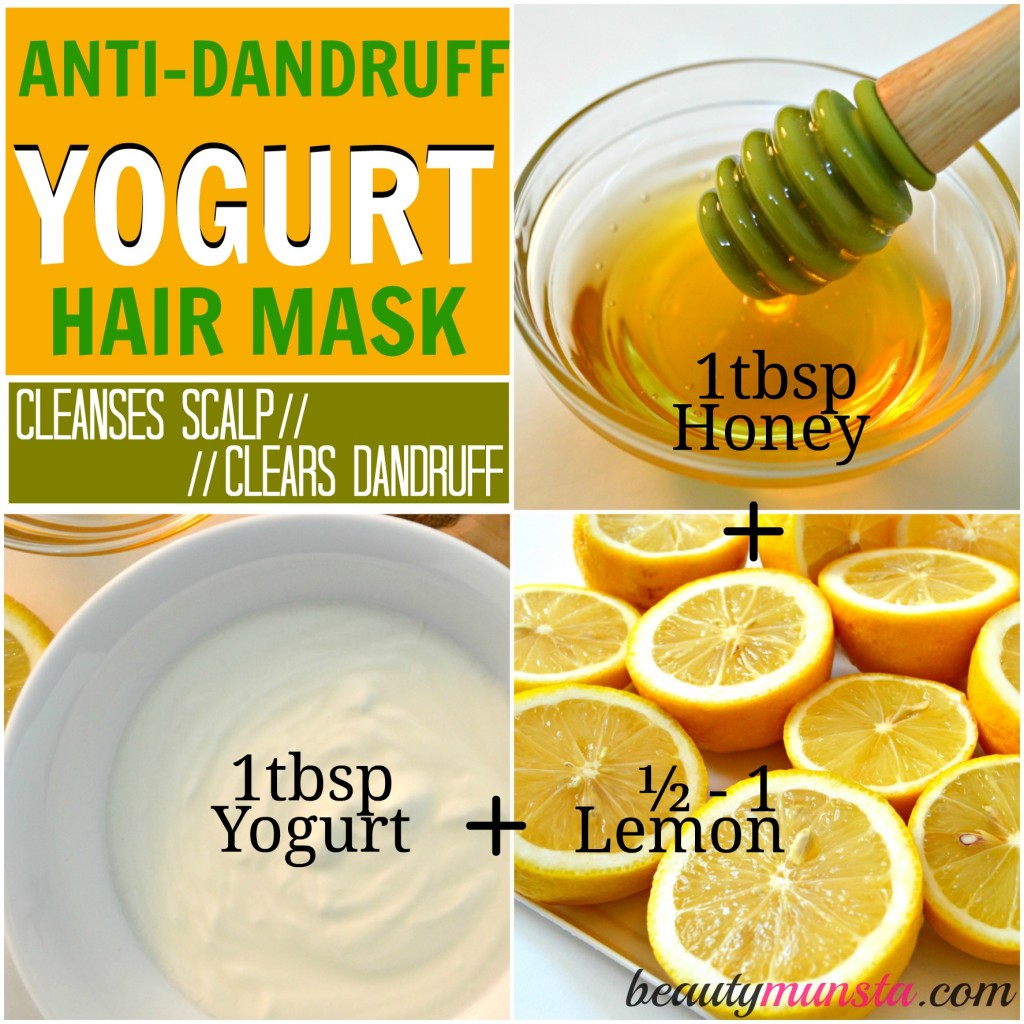
5. Baking Soda Application against Dandruff
As an at-home remedy for dandruff, baking soda is very beneficial, thanks to its antifungal properties capable of inhibiting the fungi that cause excessive skin cell production, leading to dandruff. It also works as a mild exfoliator, removing surplus oil and dead skin cells from your scalp. To leverage baking soda’s dandruff-controlling power, mix it with water in a 1-to-3 ratio. Apply this mixture on your scalp and rinse after one to two minutes. Ensure not to leave it on for prolonged periods as it might dry out your scalp.
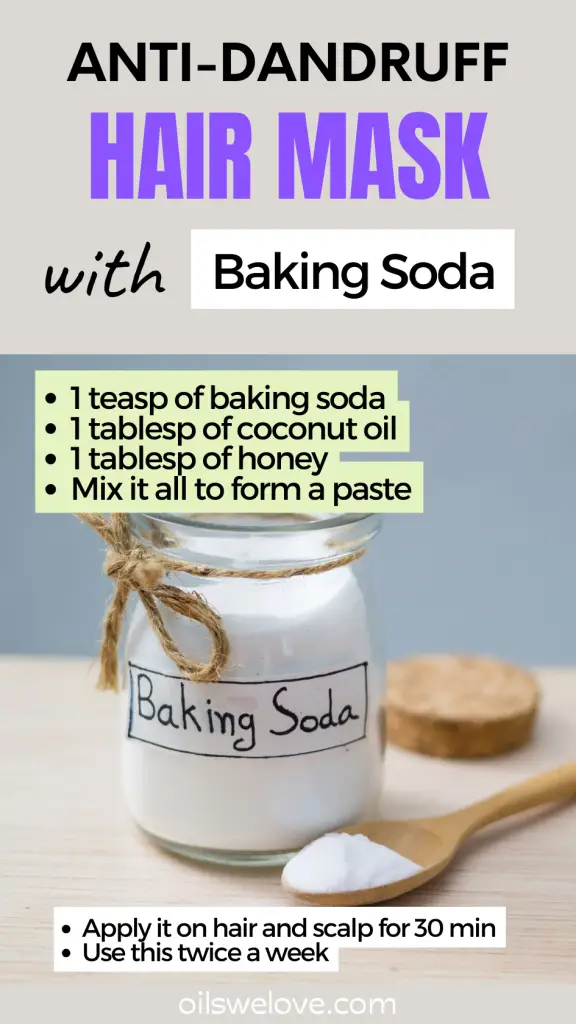
Besides these effective solutions, other practices such as regular scalp cleaning and maintaining a healthy diet rich in zinc, B vitamins, and certain types of beneficial fats can also protect against dandruff. However, before experimenting with any new remedies, it’s important to test them on a small area of your skin to prevent unexpected reactions.
Ultimately, the journey towards a dandruff-free scalp doesn’t have to be complex or filled with chemicals. Nature has provided us with potent remedies that, if used correctly and with proper precautions, can bring about effective and lasting results. By grounding our understanding in scientific facts and debunking misconceptions, we empower ourselves to make informed decisions in handling our dandruff issues. The aforementioned home remedies are not only tried and tested but also backed by science in their effectiveness against dandruff. With a mindful approach and routine, it’s possible to say goodbye to those pesky, embarrassing flakes and uncover a healthier scalp and confident self.
